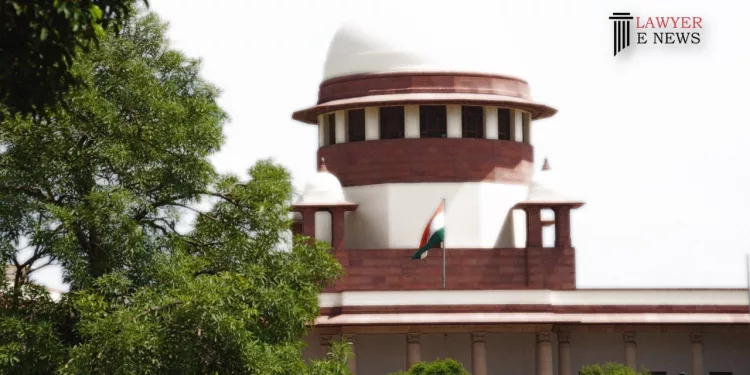“Discharge of Probationary Constable Not Punitive but Simpliciter,” Rules Supreme Court

In a landmark judgment, the Supreme Court of India clarified the legal framework surrounding the discharge of probationary constables. The Court ruled that the discharge of Jaswant Singh, a probationary constable with the Punjab Police, was “simpliciter and not punitive in nature.”
The Bench, comprising Justices J.K. Maheshwari and K.V. Viswanathan, delivered the judgment on September 5, 2023. The case revolved around Rule 12.21 of the Punjab Police Rules, 1934 (PPR), which allows for the discharge of a constable found unlikely to prove an efficient police officer within three years of enrolment.
“In our considered view, all the three Courts misconstrued Rule 12.21 of PPR and decreed the suit filed by the respondent-plaintiff,” the Court observed. The judgment further stated, “Looking to the contents of the order of discharge, in the considered opinion of this Court, there is no foundation of misconduct alleged in the order and it is an order of simpliciter discharge of a probationer constable.”
Jaswant Singh was discharged from the Punjab Police during his probation period, which he challenged on the grounds of a violation of the principles of natural justice. Both the First Appellate Court and the High Court had previously upheld Singh’s claim, dismissing the State’s appeal. They held that the discharge was not legally sustainable and granted all service benefits to Singh.
However, the Supreme Court set aside the judgments of the High Court and lower courts. “For the reasons discussed above, we are of the considered opinion that the view taken by the High Court and also by the two courts below is completely erroneous in law and must be set-aside,” the Court concluded.
The judgment cited various precedents to distinguish between “simpliciter termination” and “punitive termination,” emphasizing the need to examine the “nature” and “purpose” of the inquiry leading to termination.
This ruling is expected to have significant implications for employment law, particularly concerning the rights and obligations of probationary employees in the police force.
Date of Decision: September 5, 2023
UNION OF INDIA & OTHERS vs JOGESHWAR SWAIN





